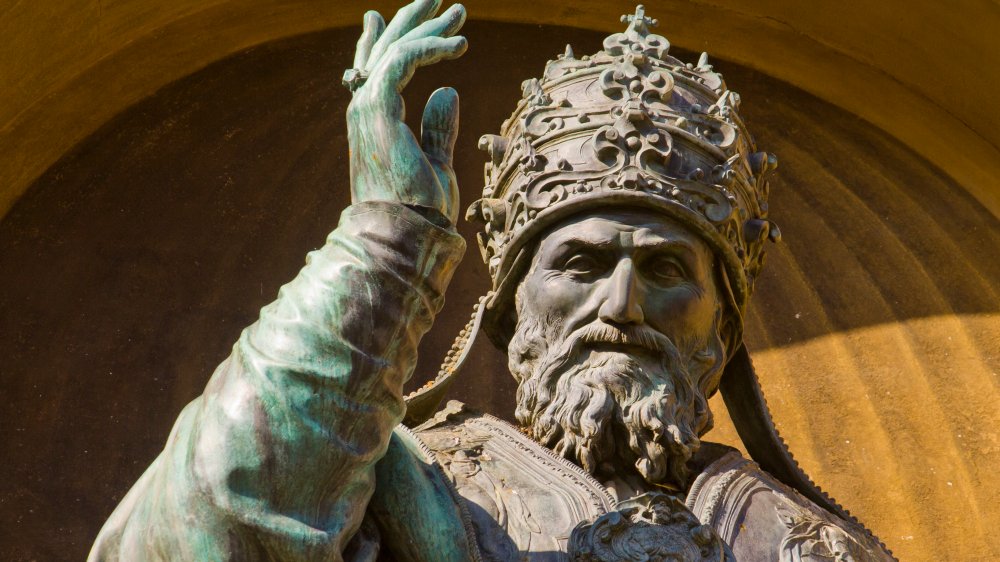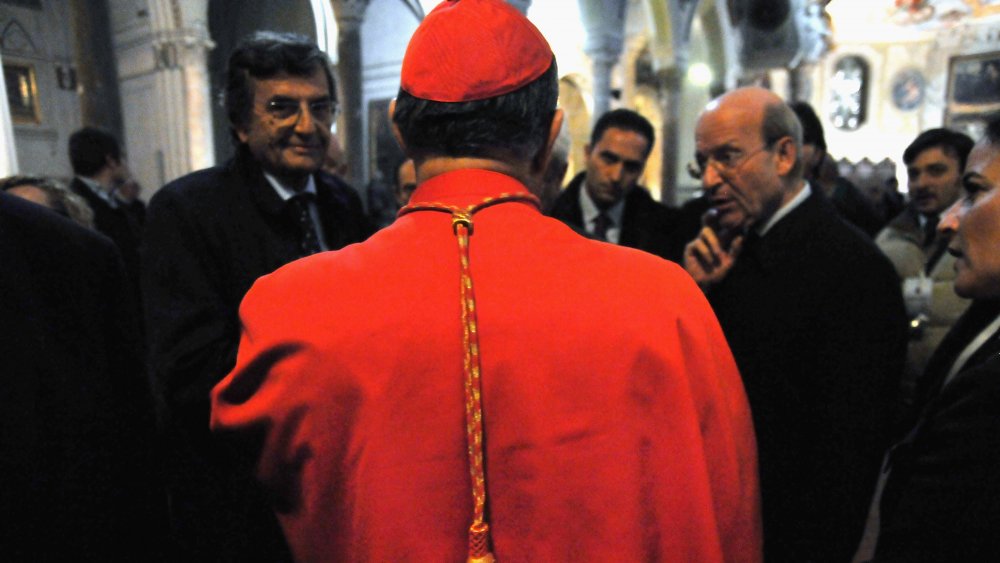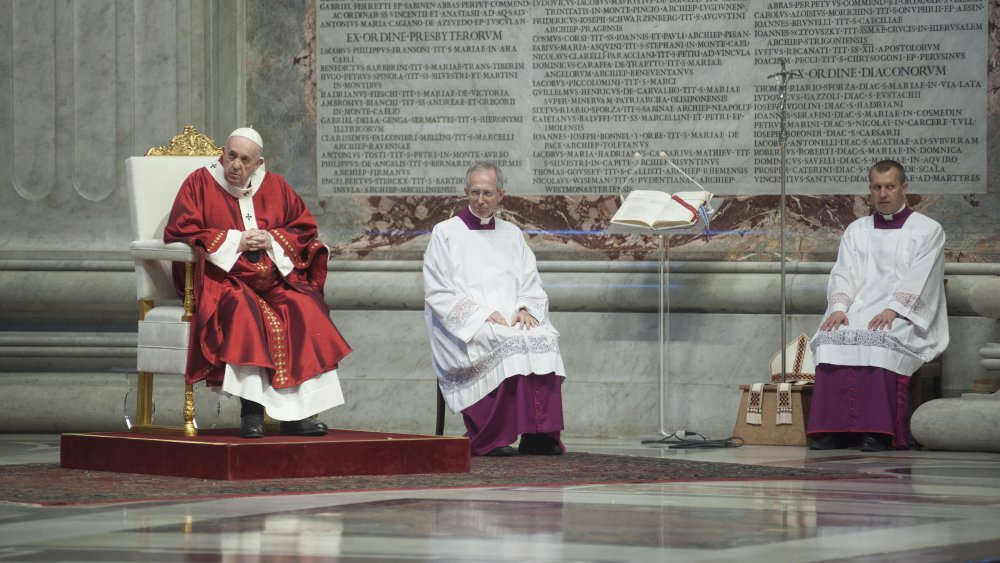Here's How The Catholic Church Investigates Miracles
While to outsiders the idea that the Catholic Church would attempt to investigate claims of miracles with vigor may sound ridiculous, there is a rigorous investigative process involved with determining whether or not someone's reported miracles warrant their canonization. From a believer's standpoint, it makes sense. If the church can determine this, they reason, then this is an act of God worth noting. However, the idea makes sense from a cynic's perspective as well, because if the church can determine the whats and whos of miracles, they gain even more power over the path their faithful follow.
But, putting aside such interpretive issues in favor of the church's procedural facts, we can all enjoy the urban fantasy-sounding name of the group who investigate these reports: a Miracle Commission.
The history of the Catholic Church's decision to investigate claims begins in the debates during the Council of Trent, which lasted sporadically from 1545 to 1563. In the twenty-fifth session, the members came to decision that "no new miracles are to be acknowledged, or new relics recognized, unless the said bishop has taken cognizance and approved thereof; who, as soon as he has obtained some certain information in regard to these matters, shall, after having taken the advice of theologians, and of other pious men, act therein as he shall judge to be consonant with truth and piety." Since then, the process has evolved to keep in accordance with the changing ideas of "truth and piety."
The commission's ethos and critiques
The truth that the Council of Trent invoked extends further than simply what they want to be true. As Live Science explains, the miracle commission consists of theologians and scientific experts. The inclusion of scientific experts, the owner of MiracleHunter.com Michael O'Neill explained to Live Science, has increasingly grown in importance with the development of scientific understanding and medicinal techniques: "99.9 percent of these are medical miracles. They need to be spontaneous, instantaneous and complete healing. Doctors have to say, 'We don't have any natural explanation of what happened.'" In short, the commission tries to apply a scientific rigor to see whether science can explain the phenomenon.
However, as Niels Christian Hvidt, associate professor of theology at the University of Southern Denmark and director of the Danish Center for Research in Faith and Health, concedes to ScienceNordic, that their method can be critiqued for operating in the opposite manner of the scientific method, namely that while scientists look for evidence to narrow down how nature works, the miracle commission is to find places where these explanations fail. And, of course, since the commission is convened by the Pope, they might subconsciously discount a natural explanation because they feel the pressure to find a miracle. However, Hvidt also thinks there's a limit to the critiques one can apply to the miracle commission: "They are very meticulous in their work. I have no doubts about that. It's entirely wrong to say that they're using medieval methods to study these things today."
The method behind the miracle
Of course, the miracle commission operates under more specific guidelines than simply sifting through paperwork for unexplainable happenings. After all, this process also leads to the canonization of saints, they also follow guidelines set by the church. On MiracleHunter.com, Michael O'Neill lists six principles that govern the evaluation of evidence:
- The facts in the case are free of error.
- The person(s) receiving the messages is/are psychologically balanced, honest, moral, sincere and respectful of church authority.
- Doctrinal errors are not attributed to God, Our Lady or to a saint.
- Theological and spiritual doctrines presented are free of error.
- Moneymaking is not a motive involved in the events.
- Healthy religious devotion and spiritual fruits result, with no evidence of collective hysteria.
All in all, nothing particularly out of the ordinary. Then, after the process of review, the church will state that the case is either Not Worthy of Belief, Not Contrary to Faith, or Approved. In the last case, it's worth noting that even if a miracle is approved, one isn't actually required to believe in it. That is reiterated by Rev. Stephan Bevans, theology professor at the Catholic Theological Union, in a comment he made to LiveScience: "I think [miracles] receded in importance [as criteria for sainthood]. It's the holiness of the life of the person that counts." Regardless if someone's femur can reduce a fever, a true Christian life is found in how well one lives in the image of God.


